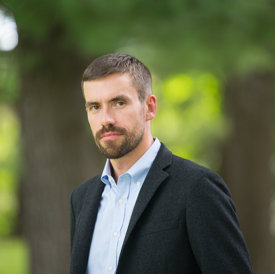ISIS, Jihadist Violence, and the Quest for an Idealized Islamic State
Michael Christopher Low
Wednesday, 06 Apr 2016 at 8:00 pm – Sun Room, Memorial Union
Michael Christopher Low will reframe the discussion of ISIS against the backdrop of more than a half century of unsuccessful jihadist attempts to topple repressive dictatorships and secular states in the Middle East. He is an assistant professor of history, specializing in Late Ottoman, Modern Middle Eastern, and environmental history. His articles, commentary, and reviews have appeared (or are forthcoming) in the Arab Studies Journal, Comparative Studies in Society and History, Comparative Studies of South Asia, Africa and the Middle East, Jadaliyya, the International Journal of Middle East Studies, the Journal of the Ottoman and Turkish Studies Association, and the Review of Middle East Studies. He earned his Ph.D. From Columbia University. College of Liberal Arts & Sciences Dean's Lecture SeriesIowa State University faculty, staff and students may contact the Lectures Program with requests for the presentation podcast.
Abstract:
Out of the ashes of the tragic civil war in Syria and the rubble of a hobbled Iraq, the world is confronting refugee and humanitarian crises on a scale not seen since World War II. Vanishing borders that once separated Syria and Iraq have become the epicenter of a rapidly spreading jihadist movement known as the Islamic State or ISIS (the Islamic State in Iraq and Syria). ISIS's gruesome social media broadcasts of beheadings and their chilling attacks on Paris nightlife have often been depicted as the latest fronts in a global "clash of civilizations" pitting Islam against the West. For many Americans, this seemingly mindless violence is merely a continuation of the global war on terror and ISIS is merely an updated, darker version of Osama bin Laden's al-Qaeda. And yet, this ignores something very basic about ISIS. The vast majority of its violence has been perpetrated against fellow Muslims, not Americans or Europeans. As a result of this myopic focus on relatively rare, but spectacular acts of violence against the West, we often fail to examine why groups like ISIS and their predecessors have sought to build an Islamic state or a Caliphate in the first place. By reframing ISIS against the backdrop of more than a half century of unsuccessful jihadist attempts to topple repressive dictatorships and secular states in the Middle East, we can better understand ISIS as the product of a rapid intellectual redefinition of how and when jihad can be deployed and who is considered a legitimate target of violence in service of the creation of an idealized Islamic state.
Additional bio:
He is currently working on a book manuscript, "The Mechanics of Mecca: The Technopolitics of the Late Ottoman Hijaz and the Colonial Hajj." Drawing on Ottoman and British archival sources as well as published materials in Arabic and modern Turkish, Professor Low's project analyzes how the Hijaz and the steamship-era pilgrimage to Mecca simultaneously became objects of Ottoman modernization, global public health, international law, and inter-imperial competition during the late nineteenth and early twentieth centuries.
Cosponsored By:
- College of Liberal Arts & Sciences
- Committee on Lectures (funded by Student Government)
Stay for the entire event, including the brief question-and-answer session that follows the formal presentation. Most events run 75 minutes.
Sign-ins are after the event concludes. For lectures in the Memorial Union, go to the information desk in the Main Lounge. In other academic buildings, look for signage outside the auditorium.
Lecture Etiquette
- Stay for the entire lecture and the brief audience Q&A. If a student needs to leave early, he or she should sit near the back and exit discreetly.
- Do not bring food or uncovered drinks into the lecture.
- Check with Lectures staff before taking photographs or recording any portion of the event. There are often restrictions. Cell phones, tablets and laptops may be used to take notes or for class assignments.
- Keep questions or comments brief and concise to allow as many as possible.



